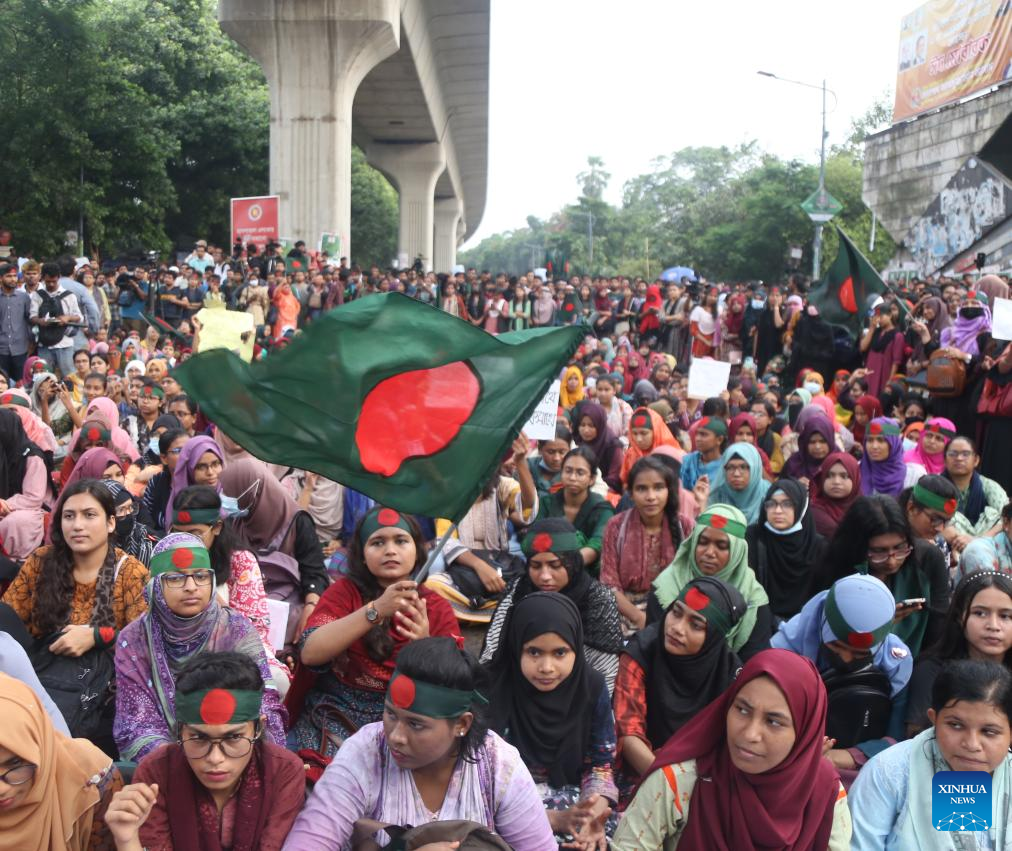Jobs
Bangladeshi students protest quota system for government jobs

Students protest against a recruitment system for the government jobs in Dhaka, Bangladesh, July 11, 2024. (Xinhua)
DHAKA, July 12 (Xinhua) — Students in Bangladeshi capital Dhaka and elsewhere in the country have been staging protests against a recruitment system for the government jobs.
Students on Thursday marched and blocked busy intersections across the country, causing traffic disruption for the fourth day, demanding reforms to the government jobs policy that offers 56 percent quota.
The daylong movement that began Thursday morning and continued until dusk. The blockade particularly in the areas surrounding to colleges and universities across the country has created severe traffic congestion.
“As part of the program, all highways and railways across the country will be blocked Thursday,” Nahid Islam, a Dhaka University student and an organizer of the movement, told a press conference in Dhaka Wednesday.
He said the “Bangla Blockade” will continue until their demands are met.
The protesting students demand that the “discriminator” quota system in all government jobs has to be abolished and as per the constitution quota will exist for the backward section at a reasonable level through the passage of law in the parliament.
The system was reinstated by a separate court last month after was halted in 2018, following weeks of protests.
Student-led demonstrations resurfaced following the Supreme Court’s affirmation in early July of a High Court ruling that reinstated the quota system for government jobs.
Under the existing government recruitment system, 56 percent of entry-level government positions were reserved for specific “entitled” classes: 30 percent for children and grandchildren of 1971 “freedom fighters,” 10 percent for women, 10 percent for districts based on population, 5 percent for ethnic minorities, and 1 percent for people with disabilities.
Because of this, protesters said only 44 percent of job candidates were able to secure positions on the basis of merit.
In 2018, the government issued a circular abolishing all the 56 percent quotas in the public service in the wake of protests by university students and jobseekers demanding reforms to the quota system that had been introduced in 1972.
Instead of court, the protesters said they are demanding the government’s executive decision on the reformation of the quota system.
Bangladesh’s apex court temporarily suspended the system on Wednesday, but protesters say they would continue it until the impasse is resolved permanently.
Students participating in the anti-quota movement are crossing limits, said the home minister on Thursday.
He urged them to stop the protests and take their grievances to court. ■







:max_bytes(150000):strip_icc()/roundup-writereditor-loved-deals-tout-f5de51f85de145b2b1eb99cdb7b6cb84.jpg)


